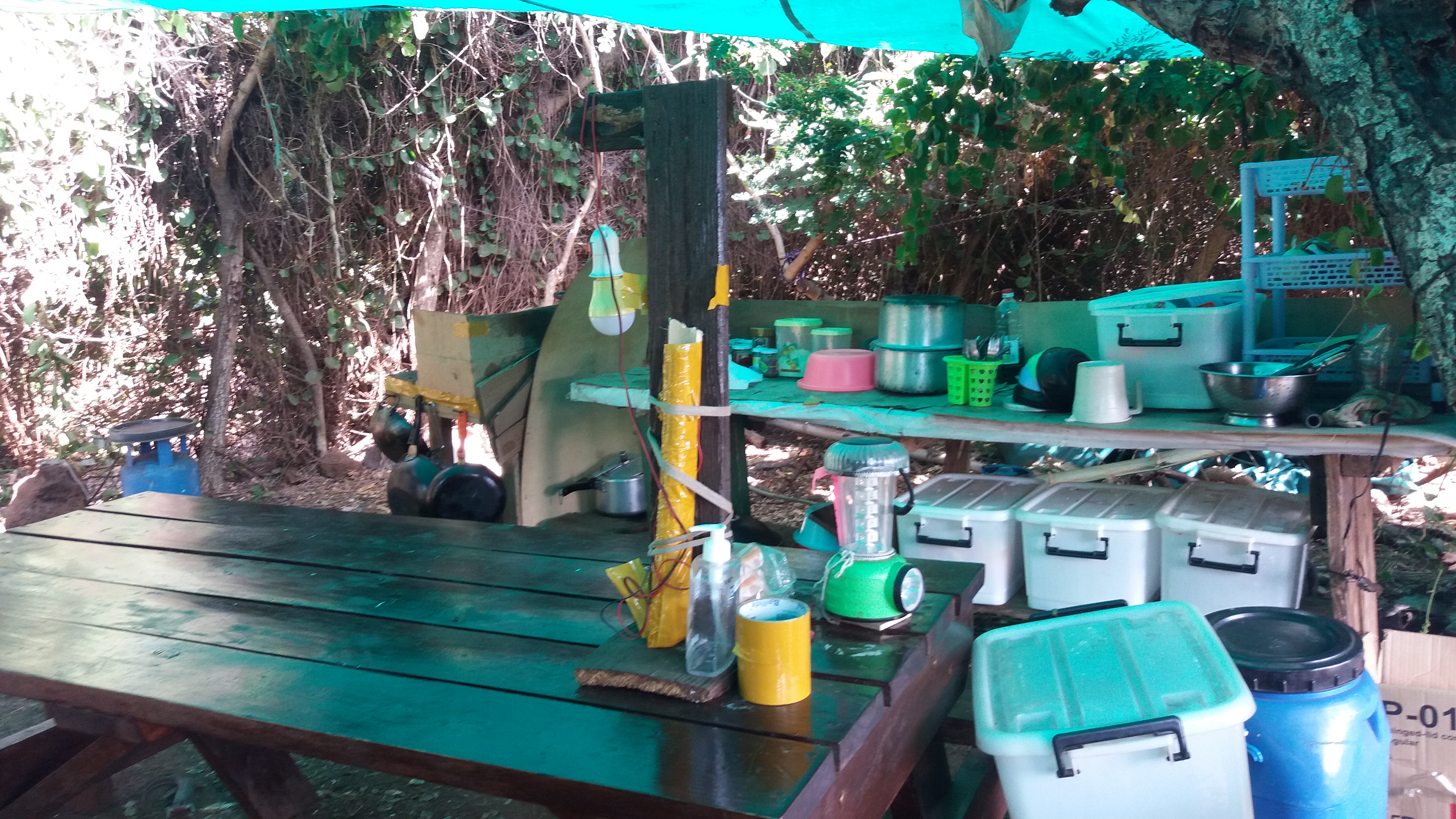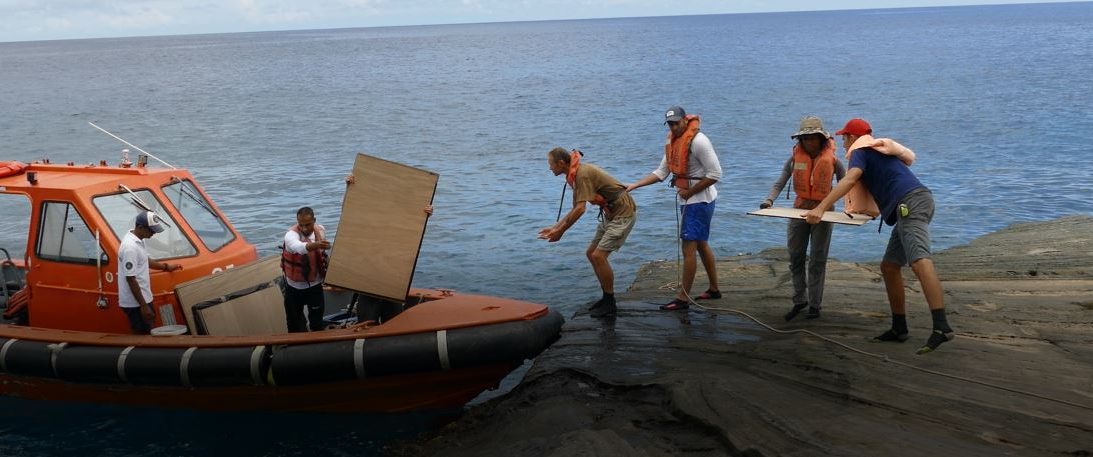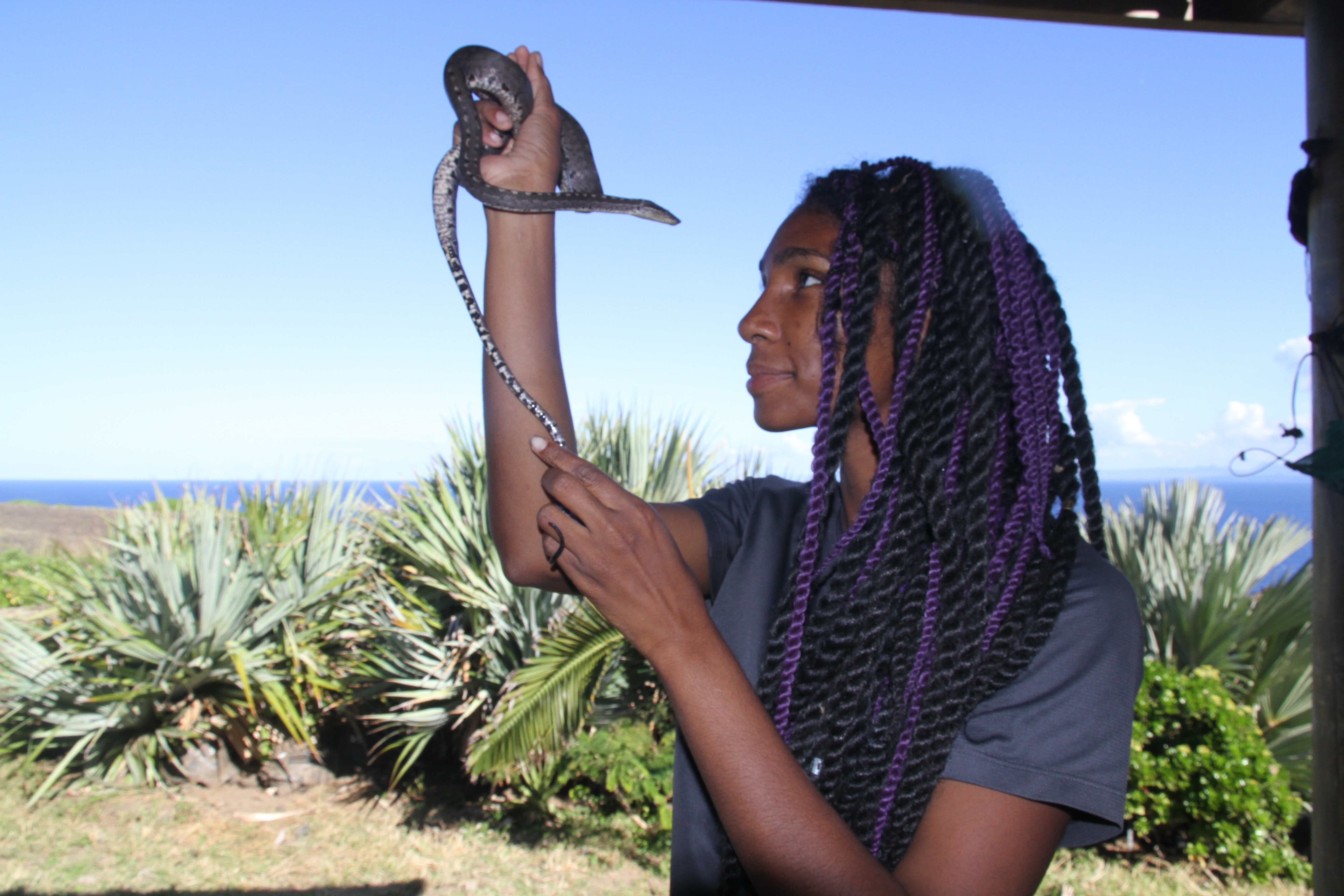What could possibly go wrong when you have planned your project perfectly, with a well-thought-out time frame to follow? After all, as Benjamin Franklin once said, “if you fail to plan, you are planning to fail”.
Well, from my personal experience, everything can crumble down at any moment. From a simple highlighter that can no longer highlight sentences, to difficulties with meeting deadlines and financial crises, right through to my EDGE project, I have to learn to be prepared for any eventuality. So far I have been sharing with you what was running amazingly well within the project, but in today’s blog let’s take a look behind the scenes – at what I like to call ‘the shadows’ – and how I have matured from this.

Firstly, like most of my co-workers, my ultimate goal as a conservation biologist is to protect and restore wildlife, in order to make a difference in this world and improve its state. However, I sometimes get the impression that Mother Nature herself does not want to be protected, and can often be difficult to work with. Natural phenomena, such heavy rainfall in the rainy season, has severely affected my project; simply by preventing boa night searches from happening and ultimately preventing me from collecting data. Furthermore, the roughness of the seas during the cyclone season has greatly contributed to delays in my study, leading to island trips being postponed or, worse, cancelled.
One big lesson that I have learnt from this project is that the weather does not follow any schedule. So, I was the one that needed to bounce back and adjust my plan according to its whim. In the end, we can be powerless when facing the caprice of nature but also arm ourselves to withstand it.

Secondly, growing up in a poor family, I came across a Creole saying quite often, “kas pa fer boner”, which means ‘money does not bring happiness’. For me, it was just a sentence that I was told in order to make me feel better for not having much, and for rich people to feel less guilty for having so much wealth. A way to keep the world in balance, I guess.
Nevertheless, dealing with finances by budgeting the expenses for the EDGE project has proven to be challenging. I was faced with a complex financial spreadsheet that I had to fill up to keep track of the numerous receipts, purchase orders and invoices, and had to manage the difficult task of getting refunds for materials already purchased. It is even more complicated to keep track of banking transactions when you live on a remote island, without any banking facilities or proper internet to solve financial issues.
However, through the EDGE project I discovered an accountant that was hiding inside of me (who knew?). The project has started to shape me into the businesswoman that I would like to become in the future, with stronger shoulders to deal with financial issues.
Thirdly, burn-out, exhaustion and physical breakdown are common to most field workers, but we have learned to overcome these in order to accomplish our tasks and protect nature. But it is a much harder fight when your mindset and mood are on the line. What happens when the fear of failure makes you lose faith in your dream, feel anger towards humanity and question the credibility of your work?
In fact, there was a point where my anxiety of failing was so strong that it had blurred my vision as an EDGE Fellow, making me doubt my work as the Round Island Warden and even question my role as a conservation biologist. People say that to be successful one has to embrace failure, as it is a normal learning process. Truly, we are growing up in a society that teaches us the opposite – either at school through exams or at work through job interviews and evaluation. Competition is everywhere and if you fail to succeed you are rejected or unworthy to be part of the system. Does that mean that we should give up? Absolutely not.

This is what happened to me throughout this project. I failed as a leader to understand and delegate tasks to my co-workers, which resulted in me overloading myself with responsibilities. With so much pressure on my shoulders I failed to keep up the high standard of work that I promised to deliver. I was feeling guilty for letting down my team.
This is when I realised that it was my fear of being judged by others, losing their esteem and approval that was shaping my definition of the word “failure” in a wrong way. Just because I have been unsuccessful at doing something does not mean that I should give up. Failure does not define who I am, rather it is the lessons that I have learned to identify my limitations and overcome them.
In my case, I discovered that I was lacking proper communication with my co-workers and that I was my biggest competition. This new perspective of seeing failure is now helping me to recognise my weaknesses as well as working on them to shape the future leader that I want to be. Yes, sometimes I have to fail to see them, but it does not mean that I am the failure and the same applies to you.
I will leave you with one of my favourite inspirational quote from the amazing Oprah Winfrey, “where the is no struggle there is no strength”. On that note, if life does not go according to plan and you fail time after time, remember that as long as you have the willpower you can overcome all the obstacles, succeed and come out stronger.
Read more about Aurelie’s project here.
